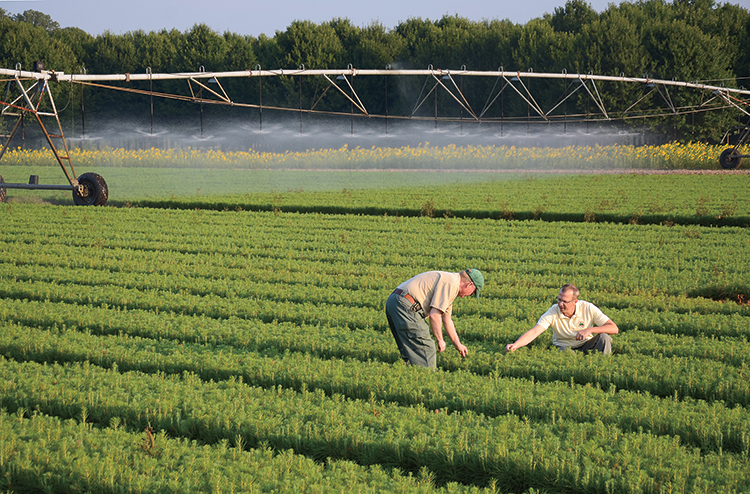Home > Tennessee > Tennessee Crops & Livestock > Tennessee Trees Grow Fast, Strong
Tennessee Trees Grow Fast, Strong
In partnership with: Tennessee Department of Agriculture

More than half of Tennessee is covered in forest, and the forest industry brings in more than $21 billion to the state and provides more than 100,000 jobs.
And because of the Tennessee Department of Agriculture (TDA) Division of Forestry’s Tree Improvement Program and its research partners, the University of Tennessee and North Carolina State University, these numbers will continue to rise as new seedlings become more genetically superior.
“Our Tree Improvement Program provides landowners with seedlings that grow fast and compete vigorously with other trees,” says Jere Jeter, state forester and assistant commissioner for the TDA Division of Forestry. “This helps ensure their regenerating forests grow healthy and continue to provide a great wealth of benefits not only to the landowner, but to all Tennesseans.”
The Tree Improvement Program works only with trees that naturally grow in or near Tennessee. Through a process of breeding and selection of the best-performing parent trees, the program develops seedlings that meet the needs of landowners, whether it’s trees that grow faster, bigger or more disease resistant.
Much of the progress made in tree improvement has been in pine trees, which are generally planted for fiber and timber production. Landowners who plant Division of Forestry pine seedlings have experienced a 50 percent gain in productivity compared to seedlings available 30 years ago, and the tree improvement program is expected to continue achieving a 1 to 2 percent annual gain in pine volume for at least the next decade.
“People tell us the seedlings have exceeded their expectations for how fast they will grow,” says nursery manager John Conn. “We can see the difference in growth even in the nursery bed.”
In addition to helping landowners maximize profitability of their forestland, the Tree Improvement Program works to improve hardwood seedlings, which are often planted to provide environmental benefits like wildlife habitat and erosion control along riverbeds.
“A healthy growing plantation of any species improves water quality, wildlife habitat and air quality,” says Russ Cox, forestry program specialist in tree improvement.
Jeter says healthy trees are a win-win for everyone, whether they own forested land or simply breathe in Tennessee air.
“Healthy trees and forests benefit all Tennesseans by providing wood products, recreation, wildlife habitat, and clean air and water,” Jeter says. “Forests managed on a sustainable basis utilizing superior genetics provide a better quality of life for everyone.”



